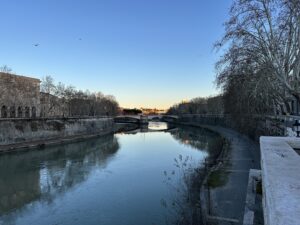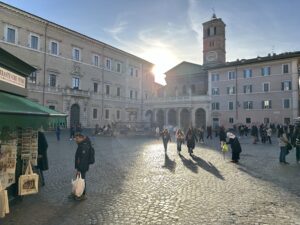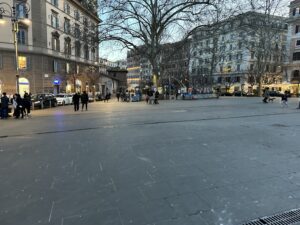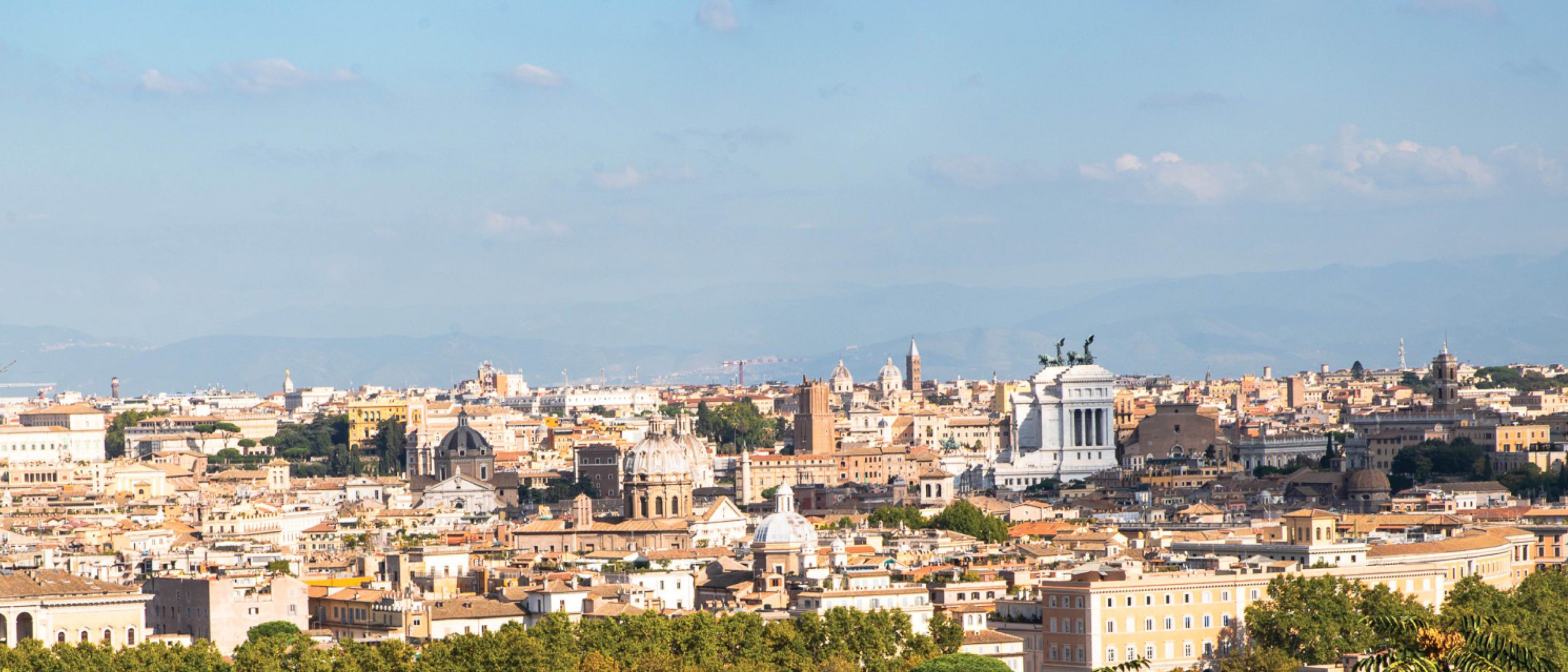After spending a considerable amount of time over the last few weeks trying to think about what to say in this post, I can honestly say that I’ve been at a complete loss. I considered writing about all the times I was left speechless, in complete awe of the grandeur of Italy, a beauty that’s common occurrence allows it to weave into every corner and alley of the country. I thought about describing all the interesting cultural and historical sights I’ve seen and the impact they’ve produced. All of these things, albeit true and possibly the subject for a later post, do not give full appreciation to an aspect of Italian life that I think is too often overlooked, yet is fully encapsulated in the saying “dolce far niente.”

The River Tiber at sunset, taken after a walk through Rome
Now I must confess the idea behind this post is not entirely my own. Recently, I met someone who at the close of our conversation ended it with, “Enjoy your time in Italy and dolce far niente.” When translated to English the saying means the sweetness of doing nothing. It is this sweetness, the sweetness of contentment, that I wanted to be the crux of this post, just like it serves as a pivotal point in Italian culture.
We often become consumed by the daily tasks of our lives. What’s the best time to leave for my commute? Where should I eat today? What project needs to be completed and what’s the deadline? These are all questions that, if you’re anything like me, find themselves at the forefront of your mind daily. They’re questions that are harmless enough, yet they are symptomatic of a particular view on life that compartmentalizes experiences. Everything is viewed as an event or something that needs immediate attention. Here in Italy, on the other hand, life is viewed with a certain degree of flow, where everything pleasantly leads to the next thing. Time is not viewed as a commodity like it too often is in the States, a tool that can be traded for something else, but rather time is considered to be a precious resource to be had with balance.

Piazza di Santa Maria, taken while I was on the way to class
I found that you begin to enjoy every detail of your day by treating life not as a race, one where you must always be completing a task, but rather as an experience with varying paces. You start to appreciate all the little things, as cliché as it sounds. Food starts to taste better, and buildings become more vibrant, of course that could also be because I’m in a city known for its architecture, nevertheless, you start to appreciate the impossibility of it all. The “sweetness,” in my opinion, is not the respite from your daily job or routine, although sure that can be part of it, but rather it is the newfound perspective that only comes with a freedom from time.

Piazza di San Cosimato, taken after returning from campus
There’s a certain level of importance in stepping back, separating yourself from all the hustle and chaos of the world, and enjoying simplicity. I have found that in these moments of “dolce far niente” I’ve noticed something remarkable. Although cultures, beliefs, and languages vary, at the end of the day people are people. We all enjoy taking the time to have a good meal, spend time with friends or family, and take comfort in being alive. I feel that too often we get so caught up in all the intricacies of our day that we forget that although we may have different identities we’re more alike than we think. I think that this realization is the true benefit of “dolce far niente.”
Note: All of the photos included above were taken without any particular sight or goal in mind, simply from my daily life in Rome.
Written by: Collin, Spring 2024 Rome student from University of Tennessee, Knoxville


Comments
No comments yet